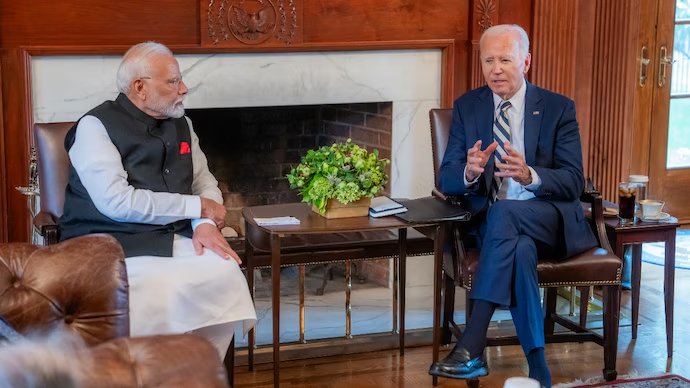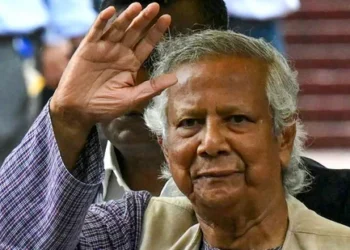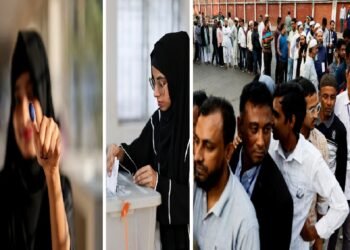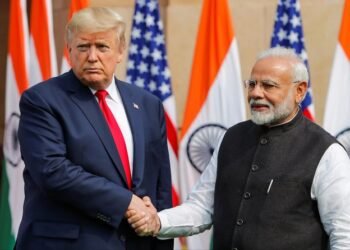PM Modi, President Biden held bilateral talks; discuss drone deal, establishing semiconductor plant in Kolkata
President Joe Biden and Prime Minister Narendra Modi held bilateral discussions during the Quad Summit at Biden’s home in Delaware state, USA. The leaders talked about multiple topics, such as the MQ-9B Predator drone agreement and establishing a semiconductor plant in Kolkata.
“Prime Minister emphasized that India and the USA today enjoy a comprehensive global strategic partnership that covers all areas of human endeavor, driven by shared democratic values, convergence of interests and vibrant people-to-people ties,” the Ministry of External Affairs said in a statement.
The discussions concentrated on enhancing US-India bilateral collaborations in “areas of mutual interest,” as stated by the Minister of External Affairs. The leaders also discussed their opinions on regional and global matters, such as the Indo-Pacific region.
Also read: PM Modi holds ‘fruitful’ bilateral discussions with Biden at his home in Greenville
Similarly, the White House said in a statement, “President Biden and Prime Minister Modi expressed unrelenting optimism and the utmost confidence that the tireless efforts of our peoples, our civic and private sectors, and our governments to forge deeper bonds have set the U.S.-India partnership on a path toward even greater heights in the decades ahead.”
MQ-9B Predator drone deal
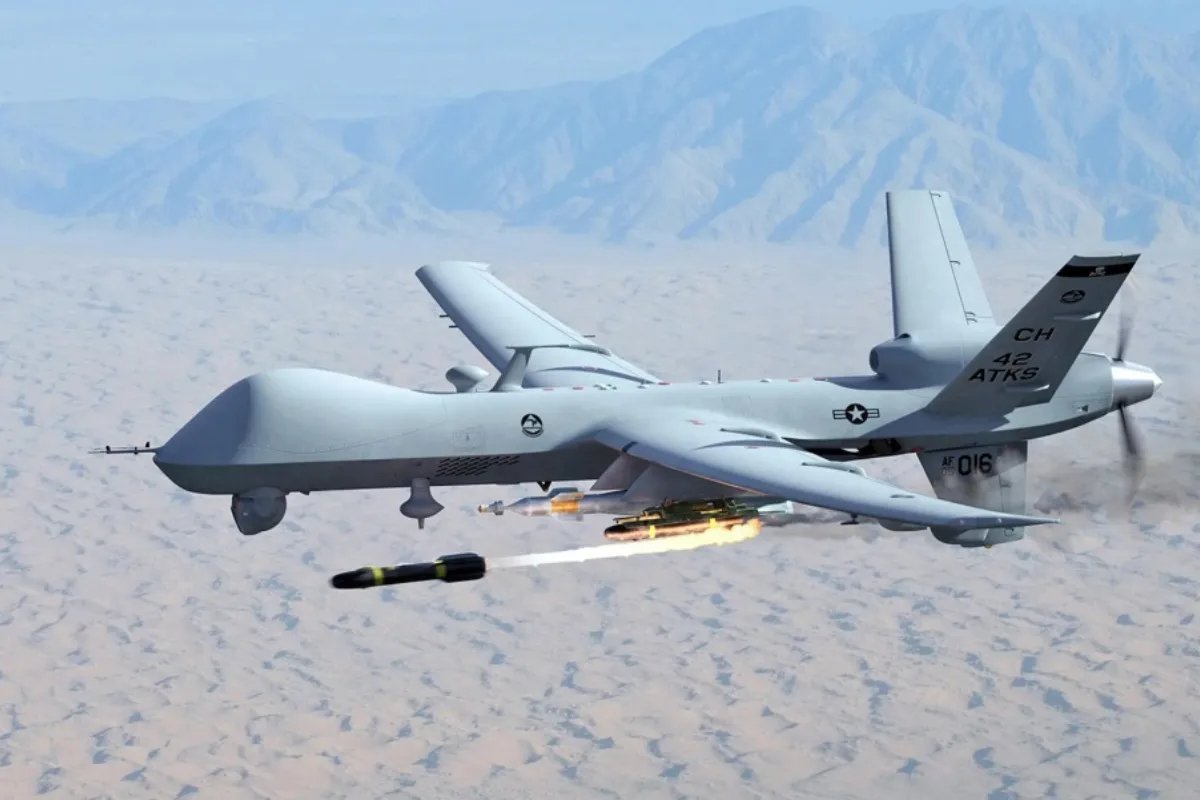
PM Modi and US President Joe Biden talked about the defense collaboration between the two nations, which includes acquiring drones and conducting joint military drills.
The President of the United States expressed approval of India acquiring 31 General Atomics MQ-9B drones (consisting of 16 Sky Guardian and 15 Sea Guardian drones), which will boost India’s military intelligence, surveillance, and reconnaissance (ISR) capabilities.
In February, the United States authorized the purchase of 31 MQ-9B drones by the Indian military for approximately $3.99 billion. The Indian Navy will receive 15 Sea Guardian drones from a total of 31 drones, with the Indian Air Force and Army each receiving eight Sky Guardian drones.
The key characteristic of the MQ-9B Predator is its capability to function in complete silence. The drone’s uniqueness lies in its stealth feature compared to others. The drone is capable of flying up to 250 meters from the ground without being detected by the target unless it is seen.
The drone has the capability to reach altitudes of up to 50,000 feet, surpassing those of a commercial airplane, and can achieve a maximum speed of 442 km/h. Another key aspect of the drone is its capacity to undertake extended missions in all weather conditions. In addition to the air-to-air missiles, the drone can also have air-to-ground missiles. The MQ-9B drone drone can also carry around 1,700 kg of payload, which includes four missiles and about 450 kg of bombs, as it can cover a distance of 2,000 miles without needing to refuel.
Also read: PM Modi’s leaves for 3-day US visit; to address Indian diaspora there
PM Modi and the US President also discussed the joint agreement signed by Lockheed Martin and Tata Advanced Systems Limited, the two companies that co-chair the US-India CEO Forum, on the C-130J Super Hercules aircraft.
“The Leaders recognized the remarkable progress under the U.S.-India Defense Industrial Cooperation Roadmap, including ongoing collaboration to advance priority co-production arrangements for jet engines, munitions, and ground mobility systems,” the White House said.
They also praised the increasing defense partnership between the two nations through the launch of the India-US Defense Acceleration Ecosystem (INDUS-X) initiative in 2023. During the third INDUS-X Summit in Silicon Valley in September, the progress achieved was also discussed.
PM Modi and US President Biden praised the use of new technologies in the defense exercises, like the first-ever demonstration of the Javelin and Stryker systems in India, at the ongoing bilateral YUDH ABHYAS exercise in Rajasthan.
Setting up of a new Semiconductor fabrication plant in Kolkata
PM Modi and the US President talked about establishing a brand new semiconductor fabrication plant in Kolkata. It was mentioned that the plant would be set up with assistance from the India Semiconductor Mission, in addition to a strategic technology collaboration involving Bharat Semi, 3rdiTech, and the US Space Force.
Both leaders “hailed a watershed arrangement to establish a new semiconductor fabrication plant focused on advanced sensing, communication, and power electronics for national security, next generation telecommunications, and green energy applications,” the White House said in a statement.
The White House stated that the GlobalFoundries Kolkata Power Center will strengthen connections in research and development for chip manufacturing, leading to significant progress in zero and low emission vehicles, internet of things devices, AI, and data centers.
Permanent membership for India in the UN Security Council
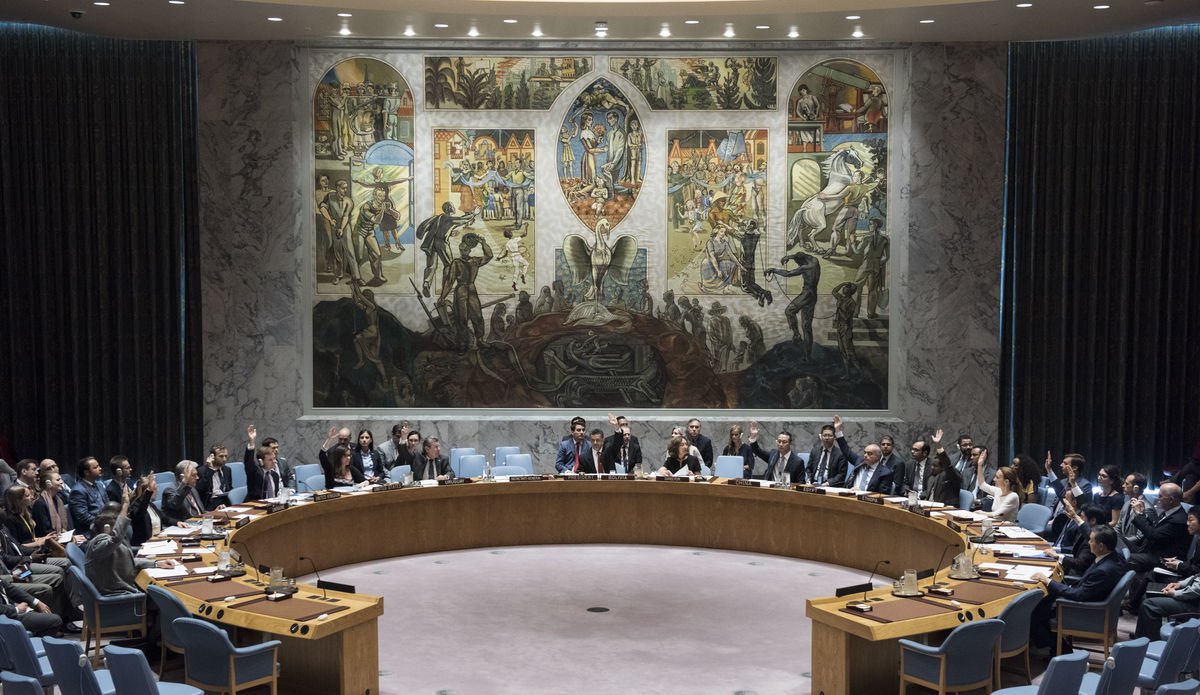
While discussing, Biden expressed the US’s backing for efforts to revamp international organizations to include India’s significant influence, such as granting India a permanent membership in the UN Security Council.
The President of the United States praised Prime Minister Modi for his recent trips to Poland and Ukraine. The White House praised PM Modi for his support towards Ukraine and emphasis on peace, humanitarian aid, energy sector, and adherence to international law, particularly the UN charter.
The two leaders also talked about ensuring freedom of navigation and protecting commerce, such as important maritime pathways in the Middle East. India is set to co-lead the Combined Task Force 150 in 2025, partnering with Combined Maritime Forces to safeguard sea routes in the Arabian Sea.
Also read: Quad Summit: Ukraine, Gaza, Biden’s farewell and cancer fight on agenda
Green Energy
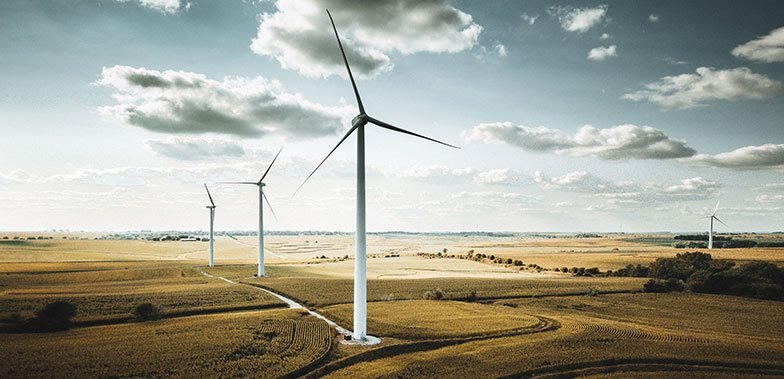
PM Modi and President Biden praised the US-India Roadmap for establishing a new initiative to speed up the development of secure global clean energy supply chains via manufacturing of clean energy technologies in both countries.
In the beginning stage, both nations will collaborate to access $1 billion of multilateral funding to back projects in various clean energy areas such as renewable energy, energy storage, power grid and transmission technologies, high efficiency cooling systems, zero emission vehicles, and other new clean technologies.



